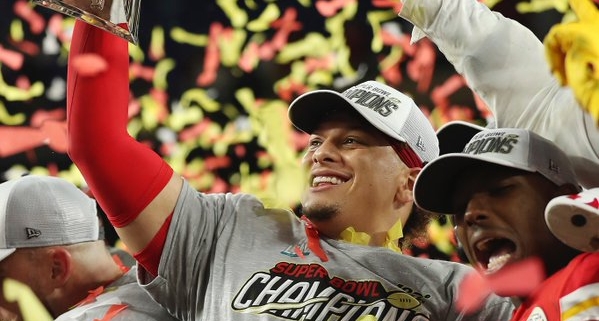The State of Play: In light of SB LIV ratings, Iowa turnout is worrisome

Last weekend marked the beginning of what many American sports fans consider to be the worst part of the year — a miserable stretch of time between the end of the Super Bowl and the beginning of March Madness where all we have left to watch is NBA games where players clearly do not care enough yet to try and NHL games that no one within 50 square miles of you is aware of.
Gone are the weekends of watching football and the weekdays of watching football highlights. Now, for approximately one month, sports fans are left to lie alone and idle, reminiscing over the once-constant stream of football that now feels like a distant memory.
We can draw several conclusions from this feeling of existential sports dread. First, I should get out more, and second, sports are very important in the United States — so important that some have gone as far as to call it “America’s religion.”
“The sports stadium has replaced the church sanctuary as the dominant arena of piety at the turn of the 21st century,” wrote professor and theologian Randall Balmer in an article for Sojourners.
The numbers back up Balmer’s claim as well. A week and a half ago, 99.9 million viewers tuned in to watch Super Bowl LIV. This represented a slight uptick from the previous year: Super Bowl LIII garnered 98.2 million. To add icing to the cake, when factoring in the use of streaming platforms, Super Bowl LIV’s viewership increases to 102 million people.
In light of America’s current state of political participation, this is deeply discouraging. Through both qualitative and quantitative lenses, we appear to be a country more invested in professional sports than our democratic processes. And while I recognize that it is easier to take in the joys of a football game than it is to vote, the idea that we are collectively more concerned with the fate of the Kansas City Chiefs than the fate of the United States is alarming.
One day after the Super Bowl, the Iowa caucuses began. From what I understand, it’s an event where a bunch of politically active Iowans take work off to assemble in gymnasiums, churches, libraries and homes throughout the state to duke it out and pick the candidate they want to represent their party in the general election.
How this plays out in reality is still hazy to me no matter how many articles I read online, but the big takeaway is that these caucuses have correctly picked the Democratic Party’s eventual nominee 100% of the time over the past five election cycles. So, they’re very important.
Unfortunately, unlike Super Bowl LIV, where the NFL orchestrated a flawless halftime show and succeeded in making droves of straight white males feel like strong, independent Latinx women, the Iowa caucuses were a disaster.
In Iowa, complications with an app designed to deliver caucus results to the state Democratic Party led to a politically apocalyptic meltdown where election results that were supposed to arrive by the end of the night took an additional three days.
Could you imagine if a three-day delay had befallen the Superbowl? Even a 30-minute delay would have drawn the unquenchable outrage of fans and corporate sponsors alike.
What’s more is that turnout at the Iowa caucuses fell well below expectations. Only 176,000 out of 616,000 actively registered Democrats in Iowa participated in the caucuses. That is a 29% participation rate.
In comparison, a 2014 poll conducted by the Associated Press and GfK Public Affairs and Corporate Communications found that there were about 160 million NFL fans in America. When Super Bowl LIV’s viewership is taken into account, that means 63% of fans tuned in to watch the game.
I recognize that in real life, explanations for both events and their outcomes are more complicated than I have given them credit for. Democracy is a hairy, messy affair, and far more barriers to entry exist for voting than for watching the Super Bowl. But am I alone in thinking to myself that this 34-point discrepancy is terrifying?
If 29% of football fans were to watch the Super Bowl, life would continue as it always had. The Chiefs would have still won the Super Bowl, Jimmy Garoppolo would still have choked, and you still would have gone to work or class the next day.
However, when 29% of eligible voters vote, the foundations of our American democracy crumble. 29 % means that over two-thirds of the electorate’s voices were not heard. It means that hundreds of thousands of citizens did not possess the means, will or desire to vote, which becomes especially worrisome when the issues those citizens have the opportunity to affect are not passing yards and points allowed, but health care and climate change.
It is disheartening when the passion of NFL fans exceeds the political participation of the American populace. In democracy, participation doesn’t determine the winner of a game but the fate of an entire nation. Unfortunately for our country, attendance is lacking.
Stuart Carson is a junior writing about the intersection of sports, politics and American society. He is also a sports editor at the Daily Trojan. His column, “The State of Play,” runs every other Wednesday.

